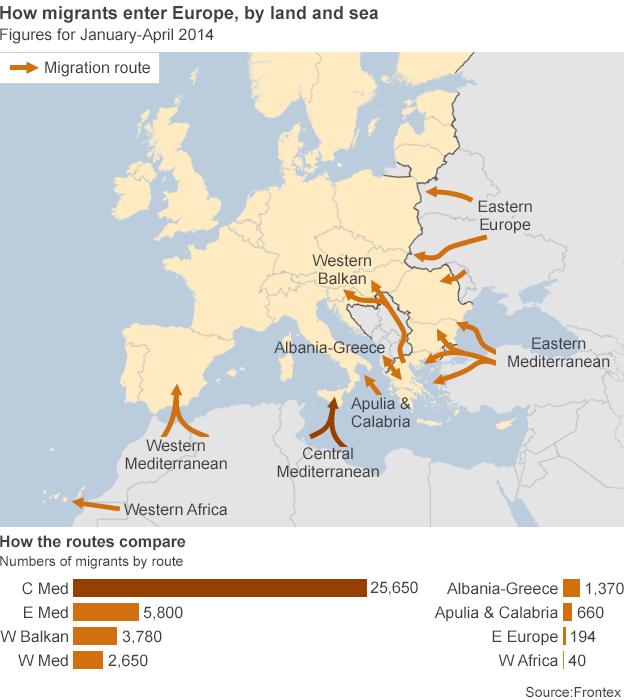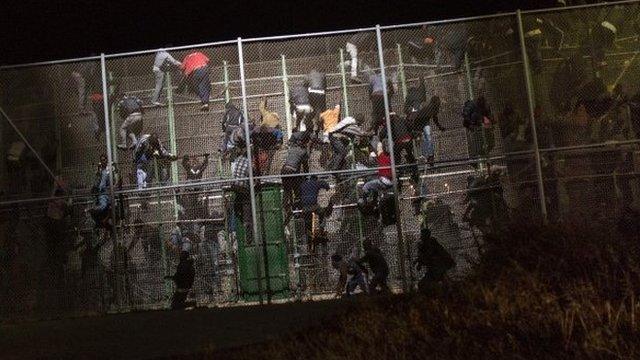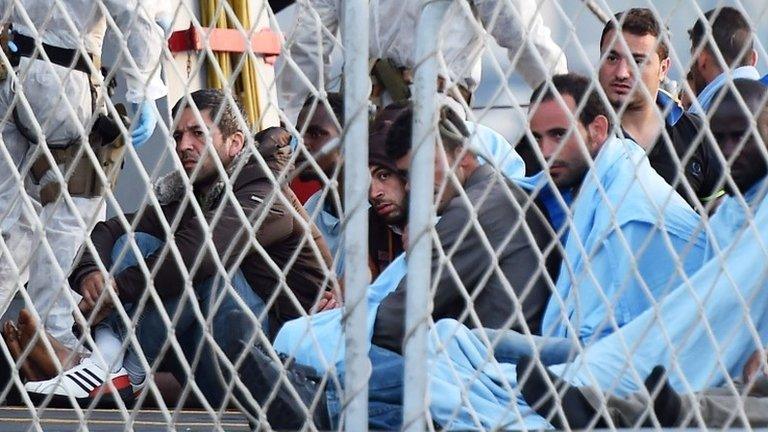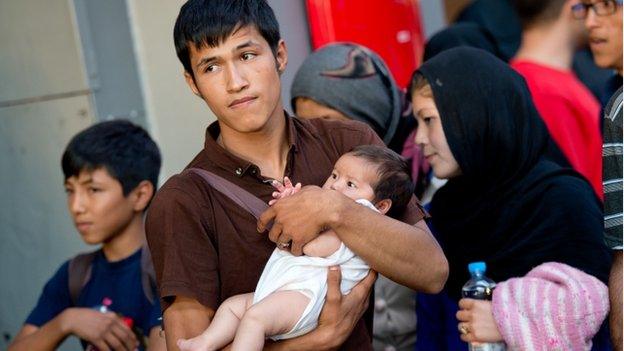Migration surge hits EU as thousands flock to Italy
- Published
- comments
The BBC's Quentin Sommerville was met with distressing scenes of squalor inside this Misrata migrant jail
There has been a significant rise in the numbers of migrants reaching Europe in recent months, the BBC has learned.
The number of people attempting the dangerous sea crossing from North Africa to Italy has risen sharply, says Frontex, the EU border agency.
From January to April, 42,000 migrants were detected on these routes, with 25,650 of these crossing from Libya.
Combined with seven other less busy routes, the total figure for this year is probably now about 60,000.

On Wednesday, the Italian government said the number of refugees and other migrants reaching its shores had soared to more than 39,000.
The total for 2014 so far is more than the equivalent period in 2011, the year of the Arab Spring, which eventually saw 140,000 make clandestine crossings into Europe.
"If the current trends continue, and with the summer months approaching, there is a strong likelihood the numbers will increase further," says Gil Arias Fernandez, Frontex's Deputy Executive Director.
At least a third of the latest arrivals are Syrians, fleeing that country's civil war.
But other significant numbers are coming from Afghanistan and Eritrea.
In Calais, where the French authorities this week demolished two main squatter camps, the BBC found migrants from a host of countries, from West Africa to Bangladesh, with large groups from Iran and Pakistan's restive tribal areas.

Tracking one of the biggest migrations since World War Two
Almost three million people have fled Syria's bloody civil war. UN figures show the human tide began in earnest in early 2012.

Experts say the latest numbers are not surprising, after relatively low levels of migration in the early months of 2013.

"The main route through Libya was closed for so long that people in sub-Saharan countries have been waiting for a couple of years," says Franck Duvell, associate professor at the Centre on Migration, Policy, and Society at the University of Oxford.
"So the numbers have been building up and people were waiting for the very first opportunity to move," he says.
"I'm not sure this implies that we are going to see ever-more people arriving in the EU over the next couple of months. We've got to wait and see."
Much depends on the chaotic political and security situation in Libya, where a BBC team has recently seen evidence that large numbers of migrants are still waiting to cross. Some estimates put the figure as high as 300,000.
Italy complains that since last October, when it launched its "Mare Nostrum" [Our Sea] rescue operation, the cost of patrolling its patch of the Mediterranean has risen to 300,000 euros (£240,200: $408,000) a day.

- Published28 May 2014

- Published15 May 2014

- Published3 March 2016
